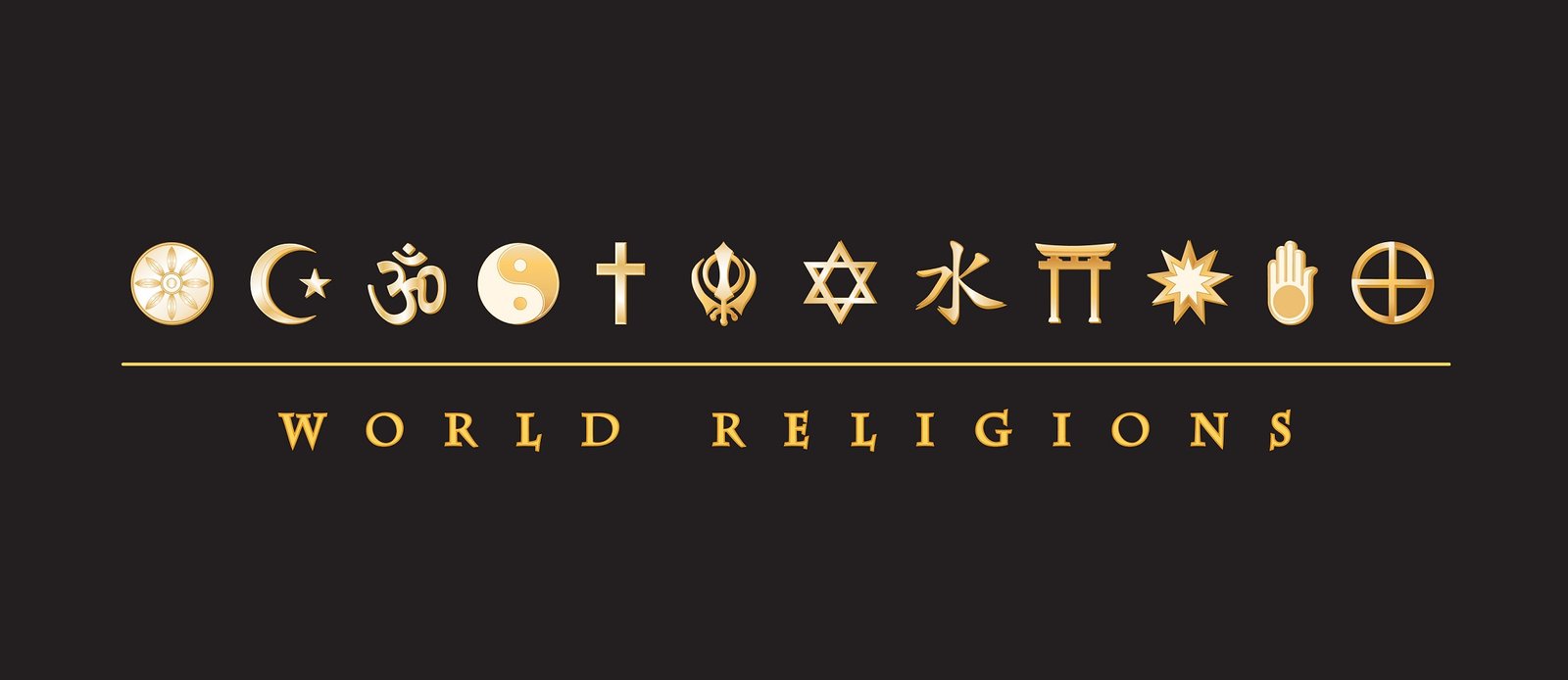Why God, Why Christianity?
Two parts: Arguments for God and Arguments for Christianity
Arguments for God in a nutshell:
Origin of the Universe (from an Old Earth Creationist viewpoint)
Note: For those who are Young Earth Creationists (YEC), I respect your view as it isn’t a salvation issue. You could be right, but here is supporting evidence on why I believe in an Old Earth: https://www.desiringgod.org/articles/our-old-earth (Grudem).
If the “Big Bang” theory is true (which appears likely based upon lots of scientific evidence), the universe exploded from an initial state of high density and temperature. Everything that exists in the universe started from this very explosion.
However, we know that something cannot come from nothing. A pizza sitting on your kitchen table, for example, was made or rather designed beforehand. Where did the “Big Bang” explosion (many scientists claim happened approximately 13.8 billion years ago) come from? The matter had to come from somewhere? God.
To reiterate the point – a cosmological argument:
1. Some may argue the universe is eternal, but much of the scientific data these days points to a universe that had a beginning with space, time, and matter. Even atheists like the departed Stephen Hawking, a prominent physicist, believed in the “Big Bang” theory and it’s almost universally accepted among scientists (Specktor; “Is the Universe Eternal?”).
2. Therefore, something BEYOND space, time, and matter, prior to the creation of the universe, had to create the universe. What is that something? God. Moreover, something cannot come out of nothing, right? But, nothing can come out of nothing. The universe is something that was created by something. God.
3. In summary, God who is beyond space, time, and matter (spaceless, timeless, and immaterial), created the beginning of the universe which is constrained by space, time, and matter. Causality: God who is eternal (Uncaused first cause) ➡ Universe (Effect).
Science
Some people say science disproves God. How so? Do the laws of physics, the way the universe works, etc., disprove God? No, it’s the other way around. God has allowed us to understand Him via science, and science proves that God exists. Some of the mathematical odds of our existence are astounding. All the elements (and fine-tuning) had to be just right for us to exist. This is referred to as the teleological or fine-tuning argument. For example, “To get your mind around this degree of precision, imagine a tape measure stretched across the entire known universe. If the gravitational force were represented by a particular mark on that tape measure, we wouldn’t exist if the force were set any more than an inch away from where it actually is” (Turek 20-21).
Some atheists or agnostics say we happen to be in a universe with just the perfect requirements for life out of hundreds of billions of galaxies and almost countless stars, which means the odds aren’t as astronomical. If this is true, what’s the main problem with the multiverse theory?
Firstly, there is little to no evidence that suggests multiple universes do exist at this time (Stein, Vicky, and Daisy Dobrijevic). Secondly, and referring to the origin of the universe section above, who created these universes if they do somehow exist? How did they get here, in the first place, for the odds of life to be greatly increased and for us to be “lucky” in that we live in one of those universes that allows for life to exist without a Creator. Simple answer: God.
Everything had to line up just right, is currently sustaining itself just right, and the complexity of the human body alone points to intelligent design (ID). Look at the written instructions in our DNA alone. How was the DNA programmed in such an unbelievably complex fashion by pure coincidence? Natural forces aren’t responsible for intelligent design rather intelligent design presupposes intelligence—a mind. For example, in order to have a computer program, you need a computer programmer. The computer program obviously didn’t write itself. Why is this different?
Some argue life came from non-life which is called abiogenesis. The “junkyard tornado,” which is also known as “Hoyle’s Fallacy,” is an argument that basically states the probability of abiogenesis is akin to a “[t]ornado sweeping through a junkyard and assembling a Boeing 747″ (“Junkyard Tornado”). How about not just us, but all of the other animals on our Earth as well?
Really think about us coming from non-life without a Creator, especially given the universal law of disorder. Did the atoms, molecules, amino acids, etc., somehow interact with one another by themselves, without intelligent design (ID), to form, or evolve in a sense of macroevolution, the enormous complexity of the human body and all of the other animals?

As Turek says in his book, Stealing from God: Why Atheists Need God to Make Their Case, “Even if there were infinite time and opportunities for nature to mutate DNA into the information necessary for new life, that still wouldn’t be enough to create a new life-form” (61-62). Epigenetic information is also required and, as previously mentioned, the universal law of disorder means nature disorders things over time.
Neo-Darwinism also runs into issues now that we know DNA is over three billion base pairs long—in almost perfect sequence—and that fossil records show the Cambrian period in which life appears abruptly; it shows evidence of limited to no ancestors, as would be needed for macroevolution to be supported. These are just a few pieces of evidence against macroevolution yet some would still rather believe in us magically mutating into existence (with almost 100 percent odds against it) than believing in a spaceless, timeless, and immaterial God that intelligently designed us with a soul, feelings, human consciousness, knowledge of right from wrong, etc.
Who created God or how did God exist?
This is an illogical question given our Creator is the uncaused first cause. Since He is not bound by space, time, and matter, and is outside of it, God has ALWAYS existed. Something that is timeless cannot have a beginning. God is timeless so God always is, was, and always will be. “I am the Alpha and the Omega,” says the Lord God, “who is and who was and who is to come, the Almighty” (English Standard Version, Rev. 1.8).
Moreover, if God did have a creator, who created God who created God who created God who created God? You would have to work your way backwards infinitely.
Plus, how could an infinite God create an infinite God? Wouldn’t they be the same? That’s clearly a problem as well.
Moral Argument
Atheists, agnostics, Christians, and other religious groups can be moral—that isn’t the problem. It’s justifying morality without God. You know right from wrong, even without reading the Bible. Something in your conscience tells you it is right or wrong. It’s written in your heart. Yet, if we exist purely by coincidence and are only “molecules in motion,” then what is to say stealing, lying, cheating, etc., is right and telling the truth, helping people, etc., is wrong? Then again, there wouldn’t even be right vs. wrong.
Each person could have their own unique and completely different “standard of morality.” How could we even develop a universal justice system if everyone’s standard of morality were entirely different? How could we even function as a society? In order to have laws, you have to have a lawgiver. Morality is no different. We have a universal standard of morality because we have a morality giver: God.
Additionally, human consciousness is another huge mystery to scientists; it has a metaphysical aspect that appeals to the existence of an immaterial God (Martin).
Evil in the world
This is ironically one of the reasons I didn’t believe in God. Why is there so much evil in the world if God exists? How could He allow evil? However, in regards to the morality argument above, define evil? It’s the absence of good. According to Thomas Aquinas, “good can exist without evil, whereas evil cannot exist without good” (“Thomas Aquinas Quotes”).
C.S. Lewis, a famous atheist that became a Christian, said the following:
“My argument against God was that the universe seemed so cruel and unjust. But how had I got this idea of just and unjust? A man does not call a line crooked unless he has some idea of a straight line. What was I comparing this universe with when I called it unjust?” (Pelzer).
Similarly, as the saying goes, you cannot have darkness without light.
Moreover, some may say the knowledge of good and evil is in our evolutionary DNA? This has so many flaws, in addition to what was previously mentioned about macroevolution, that people have written entire books about it, such as University of Cambridge graduate Stephen C. Meyers.
Didn’t God create evil?
No, even though God is higher than Satan, God didn’t create evil. Instead, God allows evil. God doesn’t make people commit evil acts. They choose to do so freely. God didn’t make them do it because if He did, He would be the author of evil. Why does God allow evil? Why couldn’t He just skip to a world without evil? For reasons that we may never know but one of them may be that we can choose between right and wrong.
God uses this current sinful world to allow us to be redeemed, build character as we draw closer to Him due to our own flaws, and so own. However, since we cannot understand all of God’s ways since God is infinite and we have are finite, we may never know. However, just as we all suffer and endure evil at times, Jesus Christ also suffered here on earth.
Moreover, Adam and Eve chose to sin by their own actions and ultimately brought about the fall of mankind. Some may say if it weren’t for them all of us wouldn’t have to suffer. Wrong. If we were in their position, the Bible indicates that we likely would have done the same thing which makes sense based upon our sinful nature and predisposition to making sinful choices.
Burden of proof
Many atheists and agnostics say you cannot prove God therefore He isn’t true. This has some truth to it since you cannot 100 percent prove or disprove the existence of God. As some atheists like to compare God to imaginary characters (which I think is a really weak comparison), it is true that you cannot 100 percent prove or disprove the existence of Santa Claus. You cannot 100 percent prove or disprove the existence of the Tooth Fairy. However, the burden of proof not only lies on those who believe in God, but also on atheists and Agnostics.
Given the idea that God is the uncaused first cause, there are many more answers required for people who don’t believe in God as opposed to Christians, and even other religious groups, who say there is a God. In other words, God more easily gives answers to questions we have than trying to prove them without God, granted God is indeed the Creator of all things. The saying, “I don’t have enough faith to be an atheist,” has merit. And, for those who say this is the “God-of-the-gaps” fallacy, advances in science are closing this gap against God (Metaxas 38).
Why doesn’t God show Himself and eliminate all doubt?
I’ve wondered this many times: why doesn’t God definitively show He exists in the sky, for example? I personally believe God wants us to have faith, trust in Him, and this just isn’t how His divine nature works. When we look around, investigate ourselves, and even use science to find answers, we can see that there is overwhelming evidence of a mind behind it all and not just a chaotic, disorderly universe. He allows those who want to seek Him to do so, and those who want nothing to do with Him do so as well; we have free will with eternal consequences.
Also, some have questions such as the following: Why doesn’t He drop food out of the sky for all of the starving children (that’s something I could deeply discuss)? One reason is it’s up to us to help one another and as previously mentioned, this isn’t how God’s divine nature works. We cannot pin the world’s problems all on Him, as well as expect Him to work in certain ways, because of our sinful choices. Needless to say, many don’t want to do God’s will. Lastly, it will all be made right one day given God is infinitely just.
Arguments for God in a nutshell:
Why a monotheistic God, such as Jesus Christ, and not a polytheistic god?
Since God is an infinite being, God has all attributes. If there was another being, it couldn’t be infinite as well. It would have to be finite in order to be different. The two beings could then differ from each other because the differing beings wouldn’t be infinite. Therefore, there is only one infinite being that can exist.
In polytheistic religions, the gods could, say, be finite—a god who creates, a god who destroys, a god who preserves, etc. However, the gods together wouldn’t be infinite.
Finite plus finite plus finite = not infinite.
Why is God a personal God?
The fact that Jesus Christ came to Earth as God in the form of a human (refer to the Trinity) shows that God is a personal God. Based upon how we observe creation within ourselves and around us (i.e., other living things), we can deduce that God has personal properties. In accordance with this logic, the Bible says the following: “So God created mankind in his own image, in the image of God he created them; male and female he created them” (New International Version, Gen. 1.27).
On the other hand, impersonal forces such as gravity exist in order to provide humans (who have personal properties) a livable environment. Plus, it seems illogical to think an impersonal force, such as gravity alone, created humans, who have personal properties.
Once someone determines there is a God and that an all-knowing God is monotheistic due to the logical implications mentioned above, by looking at all of the different “religions” he or she can find that Christianity stands out from the rest of them. Here are just a few details as to why Christianity is the truth.
How is Christianity different from other religions (influenced by process of elimination)?
1. Christianity is the largest religion in the world even with widespread Christian persecution throughout history. I don’t think this is a coincidence. Furthermore, the Bible is the best-selling book of all-time. I don’t think this is a coincidence either, especially when looking at all of the other pieces of evidence.
2. Virtually all modern scholars of antiquity believe Jesus did indeed exist (“Jesus”). Given that He did exist, here is an article on how He differs from other religions: https://www.gotquestions.org/Jesus-different.html (“How Is Jesus Different from Other Religious Leaders?”). Moreover, here is a link on how Christianity differs from other religions: https://www.gotquestions.org/correct-religion.html (“With All of the Different Religions, How Can I Know Which One Is Correct?”).
3. Many other religions claim the person has to “earn” their way to God. However, Jesus Christ came to us as 100 percent human and 100 percent God (related to the Trinity which is beyond human comprehension) here on Earth to die for our sins; He came for us. Us Christians can have a relationship with God and He can forgive us of our sins.
4. The Bible explicitly says Jesus is the only way. Jesus answered, “I am the way and the truth and the life. No one comes to the Father except through me” (John 14.6). Another verse says this: “On his robe and on his thigh he has this name written: king of kings and lord of lords” (Rev. 19.16).
5. There are roughly 25,000 manuscripts of the New Testament, which were ironically written by Jews, yes Jews, with the possible exception of Luke the Evangelist, which is more than any other book from ancient history. The second-best represented manuscript, in which around 1,800 copies exist, is Homer’s Illiad (Bird).
6. Between the three main Abrahamic religions (Christianity, Judaism, and Islam), there are differences that can be seen when analyzing them:
Non-Messianic Jews who adhere to Judaism have many similarities with Christians (Christianity) but don’t believe Jesus Christ is the Messiah, who was Jewish. Whereas, Christians believe He is the Messiah and He has already come once.
Muslims (Islam) believe in the Quran. Some obvious differences between Islam and Christianity are Muslims believe humans are born pure and innocent; man is created by Allah and is sinless. Also, they incorporate Jesus into their teachings’ but believe He was a prophet, not the Son of God (Ravi).
Contrastively, in Christianity sin is rebellion against God. Sin grieves God. In Islam, sin is disobedience to the established law. Sin does not grieve Allah (Ravi). Does that make any logical sense? Isn’t God above the law. Why would sin grieve man-made laws but not God who essentially helped create all of it and is above all of it. However, maybe this isn’t true of Islam as another source says, “Allah hates sin, but He loves sinners and is merciful and compassionate and forgiving to all those who come to Him in repentance” (Tawfiq).
Lastly, Frank Turek in, Stealing from God: Why Atheists Need God to Make Their Case, makes some further points about Islam:
While the New Testament martyrs verified Jesus had risen from the dead, the Muslim martyrs of today merely have faith that Islam is true . . . Had they lived during Mohammad’s time, they wouldn’t have seen anything miraculous either. Mohammad denied he could do miracles. Muslims writing at least one hundred and fifty years after his death attributed signs and wonders to Mohammad, but there’s no eyewitness evidence of them. By contrast, the New Testament witnesses saw and verified the miracles of Jesus, from which they would not recant even under the most excruciating forms of torture. In fact, we get the word ‘excruciating’ from the crucifixion. It means ‘to crucify.’ (204)
More info on Islam can be found here: https://jesuschrististheking.com/islam/
There are many other differences and similarities as well between these three Abrahamic religions. When looking at the evidence, errors, logic, etc., the road leads to Christianity.
Here are just a few additional details…
Some Resurrection evidence:
7. There are over 140 eyewitness details just in the second half of the book of Acts and the Gospel of John that only an eye witness could know (“Is the Jesus Story Stupid and the Resurrection Totally Mythical?” 00:01:17 – 00:01:33).
8. There are embarrassing details in the text. Why does this matter? People don’t like to make up embarrassing details if they are the author of it. Instead, they would rather hide them. For example, at the Crucifixion, the disciples run away while the women are the brave ones. Who wrote the New Testament documents down? Men (“Is the Jesus Story Stupid and the Resurrection Totally Mythical?” 00:01:33 – 00:02:29).
Thousands of people were martyred:
9. Many people lived excruciatingly painful lives and were even martyred. How many? Literally thousands of Christians in the first century AD, including most of the 12 apostles, gave their lives for Jesus Christ. Why would they do this if they really didn’t believe in what they saw and that Jesus Christ wasn’t the Son of God? They would have no motive to be a martyr (“Did Jesus Really Exist?”).
Prophecy of Jesus dying was fulfilled along with other prophecies:
10. There are Old Testament prophecies that prophesied about a coming Messiah. For example, Isaiah Chapter 53, which was written about 700 years before Jesus Christ lived, saying what Jesus did for us (“Is the Jesus Story Stupid and the Resurrection Totally Mythical?” 00:03:05 – 00:03:39).
Other religions incorporate Jesus into their beliefs:
11. Even non-Christians believe Jesus existed. For example, some religions such as Islam, Hinduism, Buddhism, etc., recognize Jesus as someone who is highly respected even though they don’t believe Him to be God.
Archeological evidence exists:
12. Nails with bone fragments used to crucify Christians, The Tel Dan Inscription has been found that is linked to King David, evidence of Herod the Great, Dead Sea Scrolls, Moabite Stone, Canaanite Temple, the possible site of Sodom and Gomorrah, the possible site of Mount Sinai, etc., have been found. Additionally, according to Rabbi Dr. Nelson Glueck, “It may be stated categorically that no archaeological discovery has ever controverted a Biblical reference” (Metaxas 119).
13. There is tons of other wisdom in the Bible in addition to Jesus’ teachings:
For example, the book of Ecclesiastes says everything is meaningless. Does this literally mean every single thing in our lives’ is meaningless? Without God, yes, everything is essentially meaningless. For example, you can do many things for yourself such as building up wealth for this world, do well in certain hobbies and sports, be famous, but after you die it is all gone. Though our interactions in this life may impact others, a life outside of God is futile in the long-run with the eternal destination being the Lake of Fire.
Why are there so many other religions?
God created humans. God created faith. Humans created religion (thousands of religions).

Faith is more of a personal relationship with God, whereas religion is more of a worldly system invented by man, in my opinion. There are many reasons as to why there are thousands of different religions. Some people want to have it their way and don’t like the teachings of Christianity, lots of people are on a happiness quest not on a truth quest, some are confused and follow an incorrect path, some have created religions to profit from, and some may be atheists because they think the existence of God(s) means they will be held accountable for their actions; they don’t want a relationship with a sovereign God who judges His creation. There is clearly an endless list of other possibilities as well.
However, whether people like it or not, based upon overwhelming evidence, Jesus Christ is highly likely to be the only true God. Though we cannot 100 percent prove certain things are true as previously discussed, the aggregation of evidence as a whole speaks for itself.
Faith is necessary to believe Jesus Christ died on the cross for your sins so that you could escape Hell and have eternal life.
Why are there different denominations?
Similar to all of the different religions, people disagree on certain things and eventually go their separate ways, one way or another. Denominations is kind of a euphemism for differences or a different set of values.
More info can be found here: https://www.gotquestions.org/denominations-Christian.html (“Why Are There so Many Christian Denominations?”).
Do unbelievers go to Hell (then eventually the lake of fire)?
The question, do all unbelievers go to Hell (then eventually the lake of fire), has been asked quite often? The short answer would be, yes. The scriptures say yes. Specifically, it says, “If you declare with your mouth, ‘Jesus is Lord,’ and believe in your heart that God raised him from the dead, you will be saved” (New International Version, Rom. 10.9-10). And “Jesus replied, ‘Very truly I tell you, no one can see the kingdom of God unless they are born again’” (John 3.3).
As for people not having evidence that God exists, this verse says the following: “For since the creation of the world God’s invisible qualities—his eternal power and divine nature—have been clearly seen, being understood from what has been made, so that people are without excuse” (Rom. 1.20).
However, it seems that every scenario is different. For example, those who have never heard about the Bible don’t necessarily go to Hell if they don’t believe, or do they? How would that be fair unless, say, God knew they would never accept Him into their hearts even if they were provided the truth? What if some atheists are just confused about the truth? There are many possibilities. Since God is an infinitely just and fair God despite what some say, God knows your motives and your heart, and God is the perfect, righteous judge (“What does it mean that God is infinite?“).
Additionally, people who really think Jesus Christ is God, and refuse to “believe” and accept Him, are basically choosing to go to the Lake of Fire. God isn’t the one making the choice, they are. God doesn’t want anyone to go to Hell. They are essentially sending themselves to Hell via their own free will.
According to the Bible:
“God wants everyone to be saved and to fully understand the truth. There is only one God, and there is only one way that people can reach God. That way is through Christ Jesus, who as a man gave himself to pay for everyone to be free. This is the message that was given to us at just the right time” (1 Tim. 2:4.6).
For those wondering how a loving God could create a Hell? To keep it short, it is a place of separation from God where people are not tortured, but tormented without things like hope, love, peace, etc. People like Hitler and Stalin should be punished for their absolutely horrible acts of evil, right? Hell is a place that allows for this and supports the idea that God is just. Even if they didn’t go to Hell, they, as with all of us, will still be held accountable for our actions.
For more info on Hell:

Do all unbelievers go to Hell (then the Lake of Fire)?
The question, do all those who die as unbelievers go to Hell (then eventually the Lake of Fire), has been asked quite often? The short answer would be…
Why do we all suffer in this world?
Starting with the fall of mankind in the Garden of Eden, sin has plagued the world. There is disease, starvation, death, natural disasters, etc., all because we freely chose to disobey God; we caused sin to enter the world, not God. For those who seem to suffer way more than others, God is just and will eventually make things right as previously said. There is the mention of crowns in Heaven as well as rewards (Rom. 2.6). Everything is calculated perfectly in God’s eyes whether or not it looks like that from our own point of view. Moreover, the Bible specifically states, “For God does not show favoritism” and “[f]or the Lord is righteous, he loves justice; the upright will see his face” (Rom. 2.11; Psalm 11:7).
Conclusion
Thanks for reading and hopefully this helps you answer some questions you may have! Also, in no way am I trying to be a Bible-thumper, maliciously offend anyone’s religious beliefs, or force anyone to believe in something they don’t want to. One of the reasons I wrote this is to provide the truth in a world filled with lies. Though Christianity cannot be 100% proven nor disproven, based upon the evidence and simply from an odds perspective, it’s almost impossible that God doesn’t exist and overwhelmingly likely Jesus Christ is God. And given this truth, all other religions and beliefs outside of this truth are false.
If you would like a more in-depth understanding of why there is a God, and why Jesus Christ is God, I highly recommend these books!
Books
Purchase:
Purchase:
Share:
Works Cited
Bird, Mark. “The Reliability of the New Testament, Part 1: Date and the Bibliographical Test.” Holy Joys, 9 Sept. 2018, https://holyjoys.org/the-reliability-of-the-new-testament-part-1-date-and-the-bibliographical-test/.
“Did Jesus Really Exist?” GotQuestions.org, 18 Jan. 2006, https://www.gotquestions.org/did-Jesus-exist.html.
Examined, Cross. “Is the Jesus Story Stupid and the Resurrection Totally Mythical?” YouTube, YouTube, 27 Jan. 2015, https://www.youtube.com/watch?v=h58RvduPnac.
Geisler, Norman L., and Turek Frank. I Don’t Have Enough Faith to Be an Atheist. CROSSWAY BOOKS, 2021.
Grudem, W. (2023, October 6). Our Old Earth: Arguments for Billions of Years. Desiring God. https://www.desiringgod.org/articles/our-old-earth
“How Is Jesus Different from Other Religious Leaders?” GotQuestions.org, 29 Oct. 2008, https://www.gotquestions.org/Jesus-different.html.
“Is the Universe Eternal?” GotQuestions.org, 1 May 2009, https://www.gotquestions.org/universe-eternal.html.
“Jesus.” Wikipedia, Wikimedia Foundation, 8 Aug. 2022, https://en.wikipedia.org/wiki/Jesus.
“Junkyard Tornado.” Wikipedia, Wikimedia Foundation, 5 Jan. 2022, https://en.wikipedia.org/wiki/Junkyard_tornado.
Martin, Sean. “God EXISTS and Human Consciousness Is the Proof – Expert’s Claim.” Express.co.uk, 1 June 2020, https://www.express.co.uk/news/weird/1288810/god-exists-human-consciousness-theology-robert-nelson-proof-of-god.
Metaxas, Eric. Is Atheism Dead? Salem Books, 2021.
Pelzer, Kelsey. “From Narnia to Wormwood to the Four Loves—Here Are the Best 125 C.S. Lewis Quotes.” Parade, Parade: Entertainment, Recipes, Health, Life, Holidays, 20 July 2022, https://parade.com/1075831/kelseypelzer/c-s-lewis-quotes/.
Ravi, NSRK. “Comparison Chart – Islam and Christianity.” Apologetics, 30 Mar. 2016, https://www.namb.net/apologetics/resource/comparison-chart-islam-and-christianity/.
Specktor, Brandon. “Stephen Hawking’s Final Book Says There’s ‘No Possibility’ of God in Our Universe.” LiveScience, Purch, 17 Oct. 2018, https://www.livescience.com/63854-stephen-hawking-says-no-god.html.
Stein, Vicky, and Daisy Dobrijevic. “Do Parallel Universes Exist? We Might Live in a Multiverse.” Space.com, Space, 3 Nov. 2021, https://www.space.com/32728-parallel-universes.html#:~:text=No%20evidence,just%20one%20universe%20%E2%80%94%20our%20own.
Tawfiq, Idris. “Does God Love Sinners and Non-Muslims?” About Islam, 19 Apr. 2022, https://aboutislam.net/counseling/ask-about-islam/god-love-sinners-non-muslims/.
“Thomas Aquinas Quotes.” BrainyQuote, Xplore, https://www.brainyquote.com/quotes/thomas_aquinas_166249.
Turek, Frank. Stealing from God: Why Atheists Need God to Make Their Case. NavPress, 2015.
“What Does It Mean That God Is Infinite?” GotQuestions.org, 27 Jan. 2007, https://www.gotquestions.org/infinite-God.html.”
“Why Are There so Many Christian Denominations?” GotQuestions.org, 17 Oct. 2007, https://www.gotquestions.org/denominations-Christian.html.
“With All of the Different Religions, How Can I Know Which One Is Correct?” GotQuestions.org, 2 Apr. 2008, https://www.gotquestions.org/correct-religion.html.

